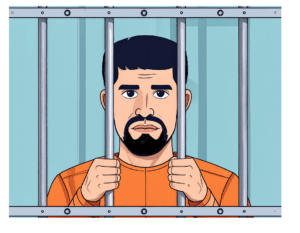Module 4 – Distributing Scarce Resources
Ethics Case 4.1
Allocating Resources to Incarcerated Individuals
Mr. Reading is a 45-year-old inmate serving a life sentence for double homicide. A former alcoholic and drug addict, Mr. Reading suffers from hepatitis C and symptoms of end-stage liver disease. Dr. Reardon was asked by the prison staff to evaluate Mr. Reading’s eligibility for a liver transplant. Once Dr. Reardon makes arrangements to add Mr. Reading’s name to the United Network for Organ Sharing (UNOS) list of those awaiting transplants, UNOS will consider only his medical need and no other factors. Before giving his “OK,” Dr. Reardon wants to consider the likelihood that Mr. Reading will comply with follow-up treatment and how likely is it that he will remain drug- and alcohol-free for the rest of his life.
 Dr. Reardon knows that if Mr. Reading is eventually granted a transplant, his medications will be regulated by the prison staff until he dies and that all illegal drugs and alcohol are prohibited behind bars. In this sense, Mr. Reading seems like an excellent candidate. In his work outside of the prison, Dr. Reardon treats several patients who will soon need to be added to the UNOS list; all of them have families and strong support networks despite low family incomes. Knowing that his assessment will have a significant impact on who receives available organs, Dr. Reardon is torn about whom to recommend for placement on the UNOS transplant list. If Mr. Reading is added to the transplant waiting list, his urgent need would move him toward the top of the list and he would receive a liver before Dr. Reardon’s other patients.
Dr. Reardon knows that if Mr. Reading is eventually granted a transplant, his medications will be regulated by the prison staff until he dies and that all illegal drugs and alcohol are prohibited behind bars. In this sense, Mr. Reading seems like an excellent candidate. In his work outside of the prison, Dr. Reardon treats several patients who will soon need to be added to the UNOS list; all of them have families and strong support networks despite low family incomes. Knowing that his assessment will have a significant impact on who receives available organs, Dr. Reardon is torn about whom to recommend for placement on the UNOS transplant list. If Mr. Reading is added to the transplant waiting list, his urgent need would move him toward the top of the list and he would receive a liver before Dr. Reardon’s other patients.

